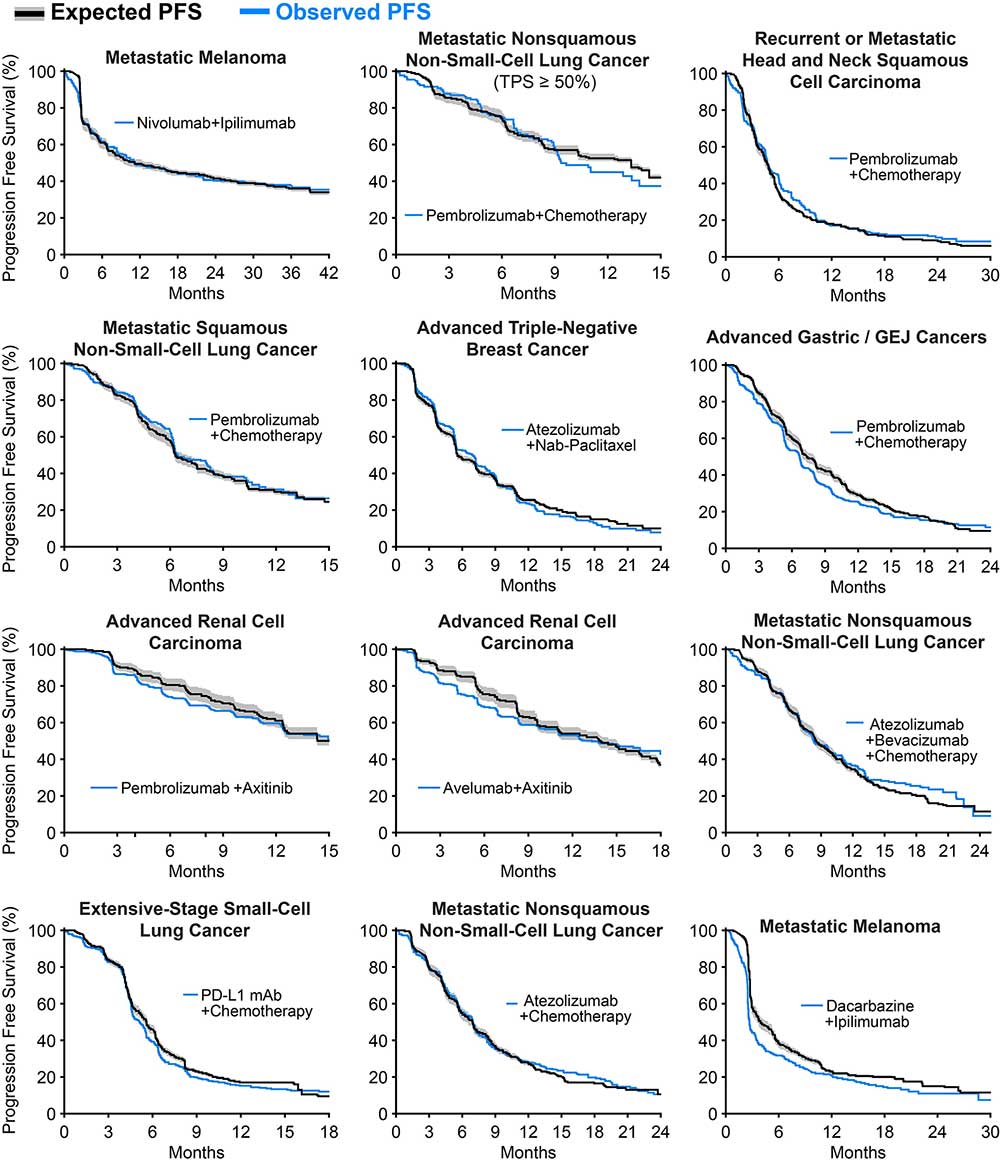Research
Combination cancer therapy
Most types of cancer can be treated more effectively by combination therapy than by a single therapy. Many cancers can even be cured with combination therapy. We study the mechanisms of action of clinically effective drug combinations, to inform the development of combinations with new therapies. Looking back, there are many decades of clinical trials which can be systematically analyzed to learn the principles of why some combination therapies have been effective and others have not. Looking forward, new cancer therapies are being developed at a remarkable pace, which poses both challenges and opportunities to assemble new and old therapies into more effective combinations.
Our approach is a synthesis of experimental pharmacology, computational analysis of clinical data, and mathematical modeling. We apply our computational methods to clinical data in many types of cancer, and our experimental work is focused on curative combination therapies for aggressive lymphomas. Heterogeneity is a universal feature of cancers, and our research has led us to a strong interest in the clinical implications of variation in drug response between patients and between individual cancer cells (inter-tumor and intra-tumor heterogeneity). With a quantitative understanding of multi-drug action in human populations, we can simulate clinical trials of drug combinations to predict the efficacy of different combination regimens. To date, the accuracy of our models have been prospectively confirmed by 10 FDA-approved combination therapies, where their clinical efficacy, measured as a Kaplan-Meier survival curve, is statistically indistinguishable from model predictions.
